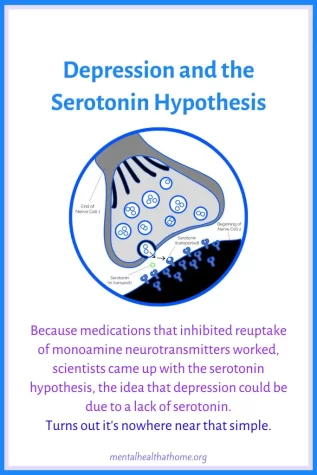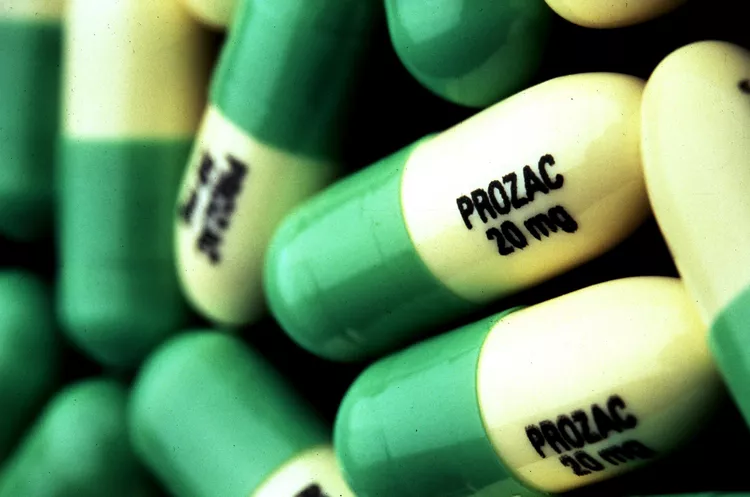The Unseen Dangers of Antidepressants for Young Minds
Understanding the Risks to Adolescent Mental Health
Antidepressants are often considered a lifesaver for individuals struggling with depression and anxiety, but what happens when they become a trap? Imagine feeling like you are held hostage by your medication, unable to function without it. Imagine experiencing intense withdrawal symptoms when attempting to quit, making it nearly impossible to stop. Unfortunately, for some individuals, this is the harsh reality of taking antidepressants. While these drugs can be incredibly effective for some, their addictive potential should not be underestimated.
Mental Health is a problem that much of the youth outwardly express needs to be addressed. One of the biggest mental health issues that youth speak of is depression, and teens are always referred to either therapy, prescribed anti-depressants, or both. What doctors fail to tell you is that the mass production of anti-depressants for teens is creating a society that is reliant on medications that only suppress their emotional shortcomings instead of fixing their mental state. Non-pharmacological interventions offer a viable solution for the treatment of depressive disorders, providing effective relief from symptoms without the potential side effects associated with selective serotonin reuptake inhibitors (SSRIs). Depression is a pervasive mental health disorder that affects millions of people worldwide, causing significant impairment in daily functioning, decreased quality of life, and increased risk of suicide. Although SSRIs are commonly prescribed as the first-line treatment for depression, their efficacy and safety are often called into question, with many patients experiencing adverse effects such as sexual dysfunction, weight gain, and emotional blunting. As such, non-pharmacological interventions have emerged as a promising alternative for the treatment of depressive disorders.
Non-pharmacological methods are a better alternative to antidepressants for the treatment of depression because they are more sustainable, safer, and provide individuals with the tools to address the underlying causes of depression and develop important emotional regulation skills. Non-pharmacological interventions, such as psychotherapy, cognitive-behavioral therapy (CBT), mindfulness-based interventions, and physical activity, have been shown to be effective in treating depression. Psychotherapy, such as interpersonal therapy (IPT) and psychodynamic therapy, can help patients understand the underlying causes of their depression and develop coping strategies to manage their symptoms. CBT can help patients identify and modify negative thought patterns and behaviors, leading to improved mood and reduced symptoms. Mindfulness-based interventions, such as mindfulness-based cognitive therapy (MBCT), can help patients learn to live in the present moment, reducing rumination and improving mood. Finally, physical activity, such as aerobic exercise, has been shown to have antidepressant effects, increasing the production of endorphins and reducing inflammation. Moreover, these non-pharmacological interventions offer several advantages over pharmacological treatments. Firstly, they are often more cost-effective, making them accessible to a broader range of patients. Secondly, they have a lower risk of adverse effects, reducing the burden of treatment on patients. Thirdly, they empower patients to take an active role in their treatment, improving their sense of control and agency.

Jerome Burne with the Daily Mail published an article titled, ‘’Could antidepressants really cause brain damage? Experts reveal the pills do not work for most people and could even cause PERMANENT harm’’. The article features various accounts that talk about the medical concerns with Anti-depressants, one of which being Peter Gøtzche, a professor for the University of Copenhagen who states, ‘’The drugs have failed to deliver what patients want, which is for the treatment to work for specific mental or emotional problems. So, there is no justification for widespread, life-long use. ‘People are kept on these drugs for years. Clinicians claim this is to prevent a relapse, but the side-effects of stopping can be so severe it is preferable to stay on them.’’ Anti-depressants are drugs made for slowing the rate of serotonin breakdown, thus acting as a preservative for an increase in mood. But the problem is that no research provides evidence that depression is linked to serotonin. Gøtzsche states, ‘’I have never seen any convincing evidence showing a psychiatric disease is causing brain damage, but have seen plenty that medication causes brain damage.’’ This becomes deceitful as doctors always tell patients that the effects from being off the drugs regarding withdrawal symptoms are signs of their depression coming back. Psychiatric drugs are known to be addictive as many people feel worse after ceasing consumption. This can mean that simply taking different medications can induce a placebo effect on a person which makes them feel as if they are better again. Jerome Burne states:
”A basic principle of randomized controlled trials (RCT) — the gold standard for testing any new drug — is that no one involved, doctor or patient, knows which group of patients is getting the drug and which the placebo. But within two weeks of the main trial for Prozac starting, researchers for the manufacturer had ignored this principle and switched patients between groups, which improved results. Even worse, to reduce the risk that Prozac raised the risk of suicide (a side-effect that had emerged in earlier trials), 25 per cent of the patients getting Prozac were given a tranquillizer — though this information did not emerge at the time. When U.S. drugs watchdog the FDA (Food and Drug Administration) discovered what had been done — according to another of the book’s authors, Dr Peter Breggin, a psychiatrist who has written books on Prozac — it calculated the benefit of Prozac without the tranquillizer was no better than a placebo.”
This shows that Fluoxetine, also called Prozac, is like most SSRI’s (Selective Serotonin Reuptake Inhibitor or Anti-depressants), because there is no proven link between serotonin production and depression, these medications are no more than placebos and work against children and adults by increasing risk of suicide. Burne finishes this stating, ‘’On the basis of such flawed evidence, Prozac launched in 1987. Other brands followed, and one — Seroxat — ran trials to get a license to treat childhood depression, but it emerged they were misleading. In 2002, the BBC’s Panorama revealed that some of these trials had found Seroxat increased the risk of suicide in children, but the manufacturer had put these embarrassing results in a bottom drawer and never published them.’’
Drugs focused on altering brain function, specifically depressive disorders, have always had very adverse effects. Before SSRI’s, there were different protein inhibitors, such as TCA’s (tricyclic antidepressants), and MAOI’s (monoamine oxidase inhibitors). Relating to these, an article titled, ’’Selective Serotonin Reuptake Inhibitors and Adverse Effects: A Narrative Review’’ from the National Library of medicine, produced by Edinoff, et al. states, ‘’These drugs, however, had unfavorable side effect profiles, resulting in poor patient adherence. Consuming too much tyramine while on an MAOI may cause a potentially deadly hypertensive crisis. TCAs can cause blockage of cardiac sodium channels and cardiac arrhythmias’’ (pg.388). The brain is an extraordinarily complex and important organ, medications that are made to offset specific neurotransmitters carry massive risks, let alone combining certain medications to increase effectiveness of already potentially faulty drugs that are nothing more than placebos. Edinoff (pg.389) states, ‘’Additionally, SSRIs are often combined with other pharmacological agents to increase efficacy. In a Spanish survey, combination therapy was frequently prescribed by psychiatrists, with SSRI and mirtazapine being the most preferred combination.’’ Mirtazapine is a drug that is known to cause a reaction which when used with other drugs that produce similar effects such as SSRI’s, can increase the risk of Serotonin syndrome.

‘’Mirtazapine can cause a life-threatening condition called serotonin syndrome. Your risk may be higher if you also take other drugs that have similar effects as mirtazapine. These include antidepressants or triptans, such as sumatriptan and zolmitriptan. Symptoms of serotonin syndrome include agitation, hallucinations (seeing or hearing something that isn’t there), confusion, trouble thinking, coma, coordination problems, and muscle twitching. They also include stiff muscles, racing heartbeat, high or low blood pressure, sweating, fever, nausea, vomiting, and diarrhea.’’ (‘’Mirtazapine, Oral Tablet’’).
Anti-depressants are drugs developed for a cause that is yet to even be proven to be any more than a placebo and has not outwardly provided enough information on its risks. Many articles state the same thing when supporting SSRI’s usage, and that is that they have yet to fully evaluate the side effects of all the different treatments that doctors insist children take. There are many different methods of escaping depressive disorders and medications should always be the last resort. Always remember to check the labels on any medications you are prescribed and do research on the effects of the individual components to ensure that you do not fall into the medicated trap that most young adults face today.
Works Cited
Edinoff, A. N., Akuly, H. A., Hanna, T. A., Ochoa, C. O., Patti, S. J., Ghaffar, Y. A., Kaye, A. D., Viswanath, O., Urits, I., Boyer, A. G., Cornett, E. M., & Kaye, A. M. (2021, August 5). Selective serotonin reuptake inhibitors and adverse effects: A narrative review. Neurology international. Retrieved April 28, 2023, from https://www.ncbi.nlm.nih.gov/pmc/articles/PMC8395812/
Jerome Burne. (2017, February 6). Antidepressants may damage the brain. Daily Mail Online. Retrieved April 28, 2023, from https://www.dailymail.co.uk/health/article-4197460/Could-antidepressants-damage-brain.html
MediLexicon International. (n.d.). Mirtazapine: Side effects, dosage, uses, and more. Medical News Today. Retrieved April 28, 2023, from https://www.medicalnewstoday.com/articles/mirtazapine-oral-tablet#important-warnings





